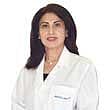Your guide to managing a high-risk pregnancy
UAE hospitals provide specialized services to prevent and manage pregnancy complications

Amy and her husband were overjoyed after a Beta-hCG blood test confirmed her pregnancy last November. After struggling with infertility for over five years, the couple was ecstatic when a scan at six weeks showed the signs of an early developing embryo.
While she didn’t experience any severe symptoms in the first few weeks, except nausea and dizziness in the morning, Amy developed high blood pressure in the second trimester, which automatically placed her pregnancy in a high-risk category. Her doctor prescribed medication to manage hypertension, and recommended more frequent prenatal visits as well as consultation with a fetal medicine specialist to rule out possibilities for any complications in the baby.
While some women have it very easy during pregnancy, for others, like Amy, the experience of childbirth is a physical and emotional roller coaster like no other, with unforeseen challenges along the way. And it becomes a nerve-racking experience, if a pregnancy is labelled high-risk.
Risk factors and complications
A pregnancy is considered high-risk when there are possibilities of developing complications due to a range of conditions that may impact the health of either the mother or the baby during pregnancy or birth.

“Any pre-existing conditions in the mother or any previous obstetric history could put the mother or her baby at a higher risk than other pregnant women,” says Dr Nazura Siddiqi, Specialist, Obstetrics and Gynaecology at Bareen International Hospital — MBZ City.
“If the mother has hypertension and diabetes or has had a previous pregnancy with issues such as fetal anomalies, hypertension, severe bleeding at delivery or any other complications during pregnancy and delivery, she is considered a high risk patient,” she says.
Advanced maternal age is another risk factor for high-risk pregnancy, says Dr Ann Mini Mathew, Head of Obstetrics and Gynaecology, Aster Hospital Mankhool.

“Risks for pregnancy complication are higher in women above 40 years and under 17 years. Women above 35 years old are also at a greater risk of having a baby with chromosomal anomalies like down syndrome. Advanced maternal age is also associated with autism spectrum disorder in the child. The risk of congenital anomaly also rises with the increase in mother’s age,” says Dr Mathew. “Pre-eclampsia, gestational diabetes, abnormal fetal presentation, and abnormal implantation also seem to be higher in older mothers.”
Dr Mathew warns, “Delaying pregnancy until mid-30s can significantly increase the risk of infertility and possibilities of developing chronic diseases that further complicate pregnancy.”
Complications during pregnancy and delivery may also depend on pre-existing medical conditions such as obesity, diabetes, high blood pressure, epilepsy, thyroid disease and cardiac and kidney ailments. Women may also develop these health conditions during pregnancy that put her in the high-risk category.
“A woman with pre-existing hypertension, for example, has a higher risk of developing uncontrolled hypertension and a condition called superimposed pre-eclampsia, which can affect her own health, impact the growth of the baby inside the womb and even risk the life of the baby,” explains Dr Siddiqi from Bareen International Hospital — MBZ City, adding, “If the mother has any pre-existing condition or is on any kind of medication, she should first consult her doctor before getting pregnant.”
Management of high-risk pregnancies
A high-risk pregnancy may have some unexpected twists and turns on the journey to parenthood, but in many cases symptoms are manageable with special care. Your gynaecologist may bring you in for extra visits as soon as the pregnancy is confirmed and order several targeted tests at any time throughout your pregnancy to ensure the best possible outcome.
“Management of a high-risk pregnancy will depend on the patient’s risk factors,” says Dr Walaa Omran, Specialist Obstetrics and Gynaecology, Aster Hospital, Qusais.

“Women with high-risk pregnancies must have a regular follow-up with the doctor for thorough evaluation of their conditions. Some may require the support and consultation of maternal fetal specialists or other doctors depending on their symptoms. If your health or the health of your baby is in danger, the doctor may also recommend a caesarean delivery.”
Most hospitals in the UAE provide comprehensive, multidisciplinary care for high-risk patients, where obstetricians and fetal medicine specialists collaborate with experts from other disciplines to manage any potential complications in patients before, during and after delivery.

“Patients with high-risk pregnancy need to choose a hospital which provides optimal care and the hospital should be able to deal with any medical issues that can arise with the pregnant mother or baby, as a planned case or as an emergency,” says Dr Kavita Goswami, Consultant Obstetrician & Gynaecologist, Mediclinic City Hospital, which offers multidisciplinary set-up and facilities that are available 24/7.

Burjeel Hospital also has a strong, well experienced and qualified team of doctors, midwives, nurses and support staff that are trained to manage high-risk pregnancy conditions. “We have always maintained a strong emphasis on multidisciplinary teaching and training and this improves team work and ensures we deliver good quality of care effectively,” says Dr Mandeep Singh, Consultant Fetal Medicine and Obstetrics at Burjeel Medical City and CEO of Burjeel Farha.
In Ajman, Thumbay University hospital boasts excellent infrastructure to help high-risk patients during pregnancy, delivery and post-delivery. “Women can have point of care ultrasound, whenever necessary, as every consulting room at Thumbay is equipped with an ultrasound machine,” says Dr Shanthi Therese Fernandes, Specialist — Obstetrics & Gynaecology.
“With consultants, senior and junior specialists and resident doctors, Thumbay’s obstetrician team offers patient-centric care, which is of paramount importance in the management of high-risk pregnancies,” says Dr Fernandes. Thumbay University Hospital has a Level 3 NICU, which is capable of caring for premature, from 24 weeks onwards, as well as sick babies.
Continuity of care is critical in managing prenatal risk factors as well as for the diagnosis and treatment of fetal complications, say doctors.
Throughout her pregnancy, Amy was monitored frequently by her obstetrician and she was also overseen by a multidisciplinary team of doctors, including internal medicine and maternal fetal medicine specialists. She gave birth to a healthy baby girl through C-section last month. “Every week was a milestone for me and I tried to remain calm as much as possible even when things weren’t the way I wanted them to be. However, with good prenatal support in the UAE, I managed to have a healthy pregnancy and delivery and welcome our daughter into our lives,” she says. ■
Unique maternal fetal medicine programme for high-risk pregnancies
Medcare Hospital Sharjah has embarked on building the largest integrated high-risk pregnancy unit. This is initiated by the Advanced Maternal Fetal Medicine programme, which is managed by consultants in maternal fetal medicine as well as highly trained sonographers.

“We start by identifying high-risk pregnancies. High risk pregnancies due to fetal problems are diagnosed and managed in conjunction with a fully staffed neonatology unit that is also supported by other paediatric sub-specialties including surgery and cardiology,” says Dr Ali Al Ibrahim, Consultant Maternal Fetal Medicine.
“We are capable of all the Invasive procedures during pregnancy including CVS, amniocentesis, fetal blood sampling, transfusion and shunting. We also provide extensive genetic testing and counselling.
“High-risk pregnancies due to maternal conditions are managed by a team-based approach together with multiple medical and surgical specialties. The hospital can safely and effectively handle complex pregnancies because it has a large team of service providers in many specialties.”
Control diabetes and weight gain for a healthy pregnancy
“Diabetes and obesity both have a high prevalence in the Middle East. These two conditions are linked – obesity increases the chance for developing diabetes,” says Dr Shanthi Therese Fernandes, Specialist — Obstetrics & Gynaecology, Thumbay University Hospital, Al Jurf, Ajman.

“It is important for every woman who embarks on the road to pregnancy to have an ideal body weight and she should also check her blood sugar levels. Having high blood sugar during the start of pregnancy could have serious effects on the baby’s development. However, the good news is that blood sugar can be controlled in pregnancy by diet modification, exercise, medicines, whenever necessary, and insulin. Manage your weight and blood sugar to have a healthy baby and healthy you.”


